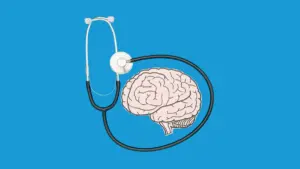What is Behavioral Health?
What is behavioral health? It refers to how daily habits, actions, and routines affect overall mental and physical well-being. Unlike mental health, which focuses mainly on emotional and psychological conditions, this term looks at the ways behaviors—such as eating, exercising, or substance use—impact health. Understanding this concept helps individuals recognize patterns that may lead to addiction, stress, or illness.

Defining Behavioral Health
The Centers for Disease Control and Prevention defines it as a broad concept that includes mental health, substance use, and habits that influence wellness. Positive choices support recovery, while harmful patterns can increase the risk of disease, stress, or dependency.
How It Differs From Mental Health
According to the American Medical Association, mental health is a part of this broader field but not the whole picture. Behavioral health includes both conditions like anxiety and depression as well as the daily actions that affect them. This wider focus ensures that treatment addresses more than just symptoms.
Why Behavioral Health Matters
The Role of Daily Habits and Behaviors
Daily behaviors, such as eating patterns, sleep routines, and exercise, shape overall well-being. Healthy routines build resilience, while harmful habits increase vulnerability to illness and emotional distress.
Links to Addiction and Substance Use
Substance use is closely tied to wellness. Misusing alcohol or drugs not only harms physical health but also influences mood and decision-making. Addressing both the behavior and its underlying causes is essential for lasting recovery.
Common Challenges
Anxiety, Depression, and Stress
Conditions such as anxiety, depression, and chronic stress are part of this discussion. Left untreated, they may disrupt sleep, relationships, and overall functioning.
Substance Use Disorders
Addiction is a major concern in this area. Drugs and alcohol change habits and reinforce destructive cycles, often requiring professional treatment to break free.
Treatment Options for Behavioral Health
Therapy and Counseling Approaches
Cognitive behavioral therapy (CBT), group counseling, and trauma-focused care are effective methods for addressing behavioral health concerns. These therapies help individuals identify harmful patterns and replace them with healthier ones.
Medication-Assisted and Holistic Care
In some cases, medication-assisted treatment (MAT) is used to support recovery. Holistic services such as mindfulness, nutrition counseling, and exercise programs also improve outcomes by focusing on the whole person.
Peer and Family Support
Support from family and peers plays a crucial role in recovery. Education helps loved ones provide encouragement without enabling harmful behaviors, creating stronger support networks.
How Oceanrock Health and South Coast Counseling Can Help
Integrated Behavioral Health Programs
At Oceanrock Health, clients receive personalized treatment that addresses both behavioral health challenges and co-occurring mental health conditions. Programs combine therapy, holistic approaches, and evidence-based care.
Support for Addiction and Mental Health
South Coast Counseling specializes in treating substance use disorders alongside mental health concerns. Their integrated programs ensure that both issues are addressed for long-term success.
Taking the First Step
Reaching out is the first step toward recovery. Both Oceanrock Health and South Coast Counseling provide safe, supportive environments for individuals and families seeking behavioral health treatment.
Prioritizing Behavioral Health
Behavioral health affects every part of daily life, from habits to emotional well-being. By addressing both actions and mental health conditions, individuals can achieve lasting recovery. With professional treatment at Oceanrock Health and South Coast Counseling, healing and long-term wellness are always within reach.








